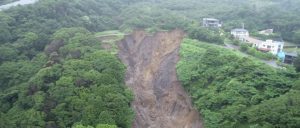
What is 'Digital Openness,' And Why Is It Important?
Innovative solutions should be easily accessible to increase collaboration amongst local experts and maximize their impacts within their communities.
November 22nd, 2021
Taichi from Japan Flying Labs recommends that the Japanese government's Standard Terms of Use should be updated to a new version after the set-up of its Digital Agency.
On September 1, 2021, Japan launched its Digital Agency, which will contribute to reforming the administrative culture in a user-driven manner through digitalization.
From an ethical point of view, 'digital openness' entails that software codes, data, innovative solutions are not locked away behind licensing fees, and other paywall means. Instead, they are easily accessible to professionals, social entrepreneurs to increase collaboration amongst local experts and maximize their impacts within their communities, rather than duplicate existing solutions.
Open Data: An Effective Tool for Disaster Management
On July 3, 2021, a large-scale landslide disaster occurred in the Aizome River in the Izusan district of Atami City. A voluntary group called the Shizuoka Point Cloud Support Team was established to respond immediately to the landslide disaster. The team consisted of myself, Taichi Furuhashi, Professor at Aoyama Gakuin University and Director of Japan Flying Labs, government agencies, and other private companies who worked together as part of a crisis mapping group to analyze and provide geospatial information about the disaster area quickly. I joined the team of professionals to assist in the rapid release of ortho mosaic images, topographic and land height data, and point cloud data. The Shizuoka Point Cloud Support Team shared the result of the landslide analysis with the Vice Governor Namba of Shizuoka Prefecture, who used the data to guide his subsequent decisions. I was deeply moved by the words of Vice Governor Namba at his final press conference as one of those involved in the project.
Remarks by the Vice Governor of Namba on the Importance of Open Data
In the words of the vice governor of Namba, "I am keenly aware that the times have changed, more so even now with how quickly we can assess data, particularly in emergencies." Barely 14 hours after the disaster occurred, we could not fly a helicopter, but we could take aerial photos using a drone and see the data analysis in a little over an hour. This effort was supported not only by the prefectural government but also by external parties. We made the data openly available to the public; then, many people were willing to support us like this.
When I reflect on ten years ago, after the Great East Japan Earthquake in 2011, I launched sinsai.info; a platform that provides disaster and relief information by combining facts and maps (OpenStreetMap) in the affected area. I remember calling local government offices to request permission to use the information on their websites as open data. However, in most cases, the answers were either "open data? I'm not sure, I'll think about it later, or I can't grant you permission." In the end, I collected most of the data on our sinsai.info site without relying on the government. This was the situation in Japan, and I am sincerely happy to reflect on our progress ten years after the 2011 earthquake.

While we have made significant progress, there is still a lack of understanding of openness in its true sense. It was on this premise that the Japanese government created the Standard Terms of Use in 2014. It was revised in 2016 as the Government of Japan Standard Terms of Use Version 2.0 to include compatibility with the Creative Commons CC-BY 4.0 License, which is recognized by the government as an international open license, and has become the de-facto standard for the open license, presently.
Several geographical survey and data catalog agencies, such as the Geospatial Information Authority of Japan, the Fire and Disaster Management Agency, etc., are licensed under the government. In addition, I'm well aware the newly created Digital Agency has adopted the government of Japan Standard Use version 2.0 or CC-BY 4.0 open data license to promote transparency in the disclosure of public documents and data obtained to taxpayers.
However, there is a tendency for many organizations to blindly assume that choosing the Government of Japan Standard Terms of Use or CC-BY 4.0 is sufficient for open data.
For example, some open data licenses are not strictly compatible with CC-BY 4.0, such as the ODbL license used by OpenStreetMap, which was created in 2012 by OpenStreetMap to license and manage a database of factual geographic information that is difficult to copyright. The ODbL license used by OpenStreetMap is one such example. Since OpenStreetMap changed from a CC-BY-SA license to an ODbL license in 2012 to manage the licensing of factual geographic information as a database, there have been several discussions about the compatibility of the Creative Commons license and the ODbL license. Still, unfortunately, the conclusion is that they are not compatible.
In particular, the Creative Commons license's rigid restrictions on digital rights management (DRM) and differences in license holder attribution cannot be bridged by the government, making it impossible to reuse CC-BY 4.0 open data in OpenStreetMap immediately. As a result, OpenStreetMap cannot immediately reuse the data opened under CC-BY 4.0.
Even so, the question arises: are there any other examples of ODbL adoption besides OpenStreetMap? I am sure you may have some questions; you may say that this is not fair, mainly because I am involved in promoting OpenStreetMap. For example, the French city of Paris has adopted the ODbL license for its open data. "MERIT DEM" by the Institute of Industrial Science, the Tokyo University has adopted dual rights; CC-BY-NC 4.0 and ODBL. Although the CC-BY-NC 4.0 is not as popular as CC-BY, ODbL is certainly gaining ground globally.
Those who want people to use the data openly and freely put CC-BY and ODbL. Still, by explicitly stating the license, the strict compatibility issues of the license become a stumbling block and prevent people from using the data freely. This is the challenge for open data as of 2021.
Before the establishment of the Digital Agency, Japan had Standard Terms of Use. Its version 2 added CC-BY 4.0. And this is the de-facto standard for open data licenses selected by governments as of 2021, and government ministries and agencies, etc., are following. However, this is insufficient because other types of open data licenses require it to be updated to version 3 to have more compatibility.
Category(s)
Location(s)
Recent Articles
View All »

Team Cameroon's Road to Victory at the First Global Robotics Competition 2025
